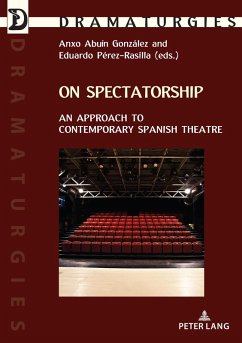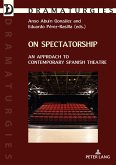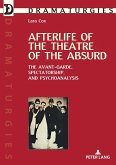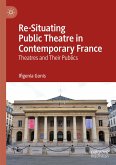This volume should be understood in the context of the "postdramatic" and "postspectacular" paradigms that have questioned traditional concepts regarding the representation and the role of the spectator in the creation of meaning and that have also emphasized the importance of performativity as a strategy enabling new scenic perspectives. It therefore dealswith a new "expansive" textuality that relates to the "social turn" in theatrical and artistic practices, embodied in the diffusion of interventionist, collaborative, dialogical or participative forms. These dissonant and anti-hegemonic forms can be located in the civic commitment that has characterized the Spanish stage in recent years.
In this volume, the reader will find discussions of the most important figures of recent Spanish theatre, i.e. writers and companies whose work has contributed decisively to the reconfiguration of the role of the spectator, , including Los Torreznos, Angélica Liddell, Roger Bernat, La Ribot, Antonio Fernández Lera, Rodrigo García, El Canto de la Cabra, Laila Ripoll, Mariano Llorente, Andrés Lima, Pablo Remón, Álex Rigola, La Fura dels Baus, and A Panadaría.
In this volume, the reader will find discussions of the most important figures of recent Spanish theatre, i.e. writers and companies whose work has contributed decisively to the reconfiguration of the role of the spectator, , including Los Torreznos, Angélica Liddell, Roger Bernat, La Ribot, Antonio Fernández Lera, Rodrigo García, El Canto de la Cabra, Laila Ripoll, Mariano Llorente, Andrés Lima, Pablo Remón, Álex Rigola, La Fura dels Baus, and A Panadaría.
Dieser Download kann aus rechtlichen Gründen nur mit Rechnungsadresse in A, D ausgeliefert werden.









